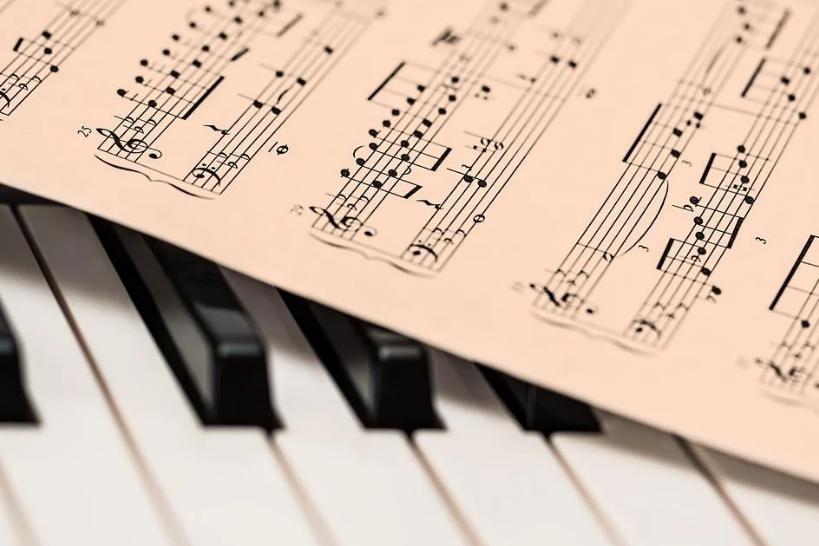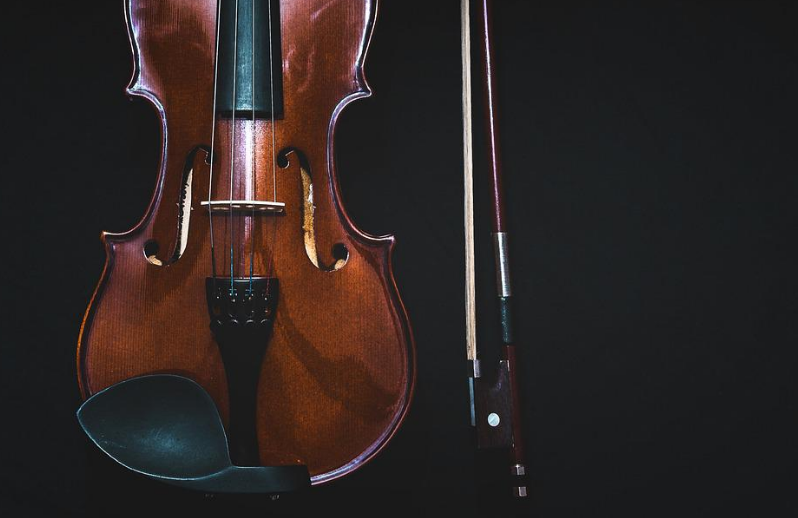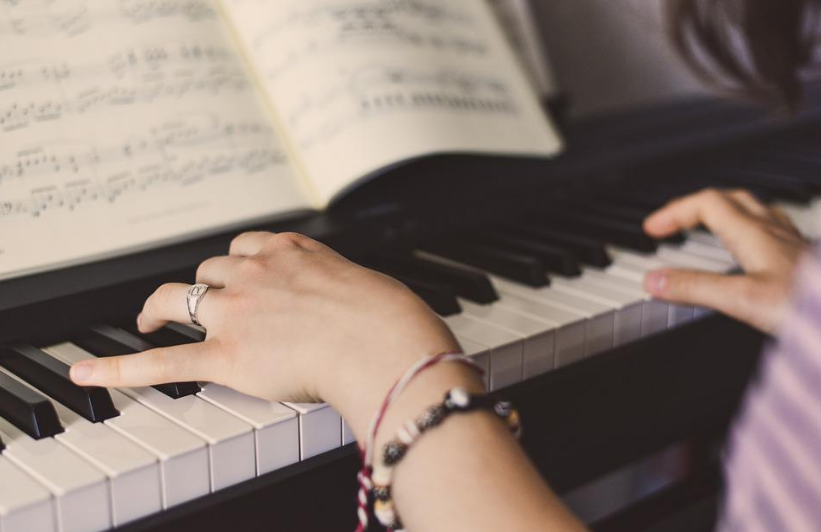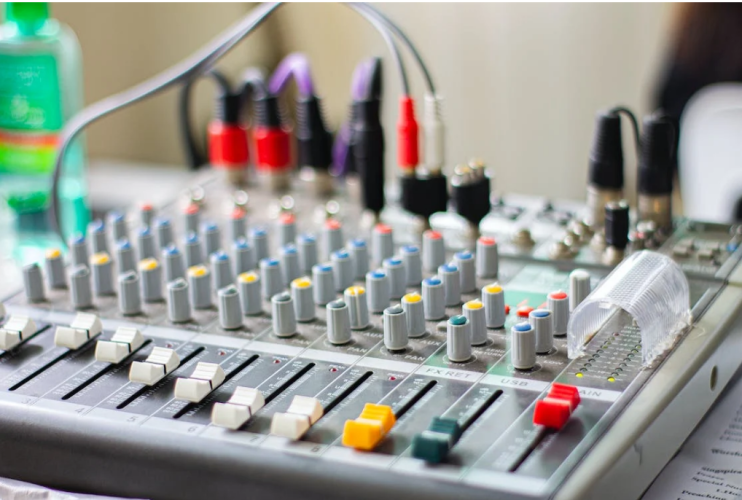One of the most evident changes in music production is that artists don’t have to go to the studios for music recording. As technology has advanced, there’s a clear shift towards multi-track recording. Multi-track recording allows more than one track to be recorded simultaneously. The tracks may be subsequently mixed and processed. If you’re planning […]

Music: The Medicine for Your Body, Mind & Soul
From the upbeat, catchy rhythms of a drum to the resounding sound of an acoustic guitar, everything around us has its music. The Nursing Critical Care journal takes you back to David’s harp to emphasize that music has always affected the mind, body, and soul.
The research emphasized that music can positively affect the body—one example is how it regulates blood pressure. Here’s a closer look at the connection between music and physical and mental well-being:
The First Musical Therapy Program
The first academic program in music therapy started at the University of Michigan in 1944. Music therapy has become an evidence-based treatment core that helps with multiple disorders. Some include:
- Autism
- Depression
- Substance abuse
The therapy especially works along individualized goals. The therapeutic interventions include listening, playing instruments, or composing music. You don’t need training in any musical instruments for this. For self-directed engagement with music, you have music teachers at The Young Musician Music Institute well-versed in different musical lessons. Enroll in our music school now for quality cello lessons or classical and jazz lessons.
The Cleveland Clinic has gone on to identify numerous physical advantages of music therapy, including:
- Better blood circulation
- Memory enhancement
- Reduced muscle tension
Research finds that music uses an intentional auditory stimulus to affect the listener’s physiological states. The musical elements of rhythm, harmony and tempo stimulate an emotional and cognitive response that curbs pain. The move reduces muscle tension and promotes healing.
Repetitive Rhythms to Regulate an Elevated Heart Rate
Music used for relaxation is non-lyrical and has slow, repetitive rhythms; a tempo of 60–90 beats/minute with a simple chord progression. The body gradually synchronizes with the tempo of the music. The synchronization, in turn, takes to the process of entrainment. The process insists when two objects harmonize their vibrations, they vibrate with the same tempo.
Music in Vibrational Medicine for the Body
The domains of physiotherapy make great use of vibrational therapy to promote good health. Some techniques used during the process of healing include:
- Body dowsing
- Nutritional changes
- Physical therapy
- Muscle testing
Music in vibrational therapy helps us connect with our core. The therapy helps clear energy blockages throughout the body, promoting improved sleeping patterns. The body can feel a bit cold and ticklish throughout the sessions.
Lowered Cholesterol Through Music Therapy
Not much research backs the claim, but a few studies found online indicate that music can help lower cholesterol. According to many doctors, music’s capacity to reduce stress can lead to lower cholesterol and better heart functioning. Some doctors insist that listening to music for thirty minutes daily can help lower cholesterol.
For a 30-minute session, you can learn a musical instrument on your own and perform it for a small audience. Go for established music schools in Abu Dhabi for music instrument lessons for a range of musical instruments.
The Impact of Music on Metabolism—A Study from the Archives
Research establishes that music plays an important role in regulating the hypothalamic-pituitary axis, the immune system, and the sympathetic nervous system. The latter regulates the energy balance in the body. That’s one reason you feel more relaxed listening to a soothing violin rendition during an orchestral performance.
Music for the Mind
Faster Music for Better Concentration
Music has a profound effect on one’s emotions. Upbeat music, such as hard rock and punk rock, helps you stay determined. A slower tempo relaxes your mind and muscles. Music is highly effective for stress management and relaxation.
Music around 60 beats per minute can cause the brain to harmonize with the alpha brain waves. Alpha brain waves are released when we are conscious, as opposed to delta brain waves released when we sleep. To induce sleep, a person would have to devote 45 minutes in a relaxed environment listening to calming music.
Music Against Anxiety and Depression
Listening to music and playing an instrument can also reduce your anxiety. Playing an instrument adds a level of concentration that induces mindfulness. Living in the moment assuages symptoms of anxiety and depression.
Accrues Dopamine Secretions
The stress hormone cortisol only takes over your brain when you cannot manage stress. Its effects include a sudden sense of helplessness, lethargy, and a severe lack of initiative, followed by deep sadness. Playing music works against cortisol by releasing the happy hormone dopamine. When you play music with pleasure, the sheer anticipation of praise raises dopamine levels.
Playing an instrument for a smaller audience works just as well for beginners. Music teachers in Abu Dhabi make sure the learning curve for students goes on from small ensembles to band performances and large-scale multi-instrument orchestras.
Music Helps Improve Memory
We’d say listening to music while doing repetitive, boring tasks is a good idea! Research believes several factors may be involved for music to improve memory. The type of music and the listener’s enjoyment level are two factors that improve memory while listening to music. A study implied that beginner music learners benefited from music more than someone well-versed in music.
Did you know singing words learned in a new language is better than regular speaking? The catchword here is ‘rhythm’, because the mind remembers it better than regular speech. Learning a new language while singing is great for word retention.
Music—Food for the Soul
Heard an enjoyable music piece in another language? That’s how music works. You don’t have to appreciate the vocals to appreciate the rhythm. Melody, irrespective of language, improves your mood and brings you closer to your essential core. Music is said to connect with your subconscious. Some reflexive actions like tapping your foot and bobbing your head to upbeat music exemplify this.
Music Affects Our Emotional Well-Being
Music is not only affiliated with love and ecstasy but with sadness and loss. The effect a peaceful jazz number has on emotions is different from that of a hard metal number. Likewise, dance tracks, classical music, etc., all appeal to different feelings on our emotional spectrum. Learn classical music with us if you’re a true fan! Enroll here.
It’s Both—Satisfaction and Suffering
Orchestral performances and renowned solo renditions have repeatedly proven music’s transcendental quality. The medium is used to depict both satisfaction and suffering.
Sustained keynotes and slow melodies are usually characteristic of soulful music. Loud and thumping music usually represents extreme joy and rage.
Join Us for a Thrilling Musical Journey!
If the soloist as a career option is what appeals to you, we’re here to help you out! At The Young Musician Music Institute, we offer music lessons for beginners in Abu Dhabi. Our Trinity certificate exams are affiliated with Trinity College, UK. Apart from pop and rock graded exams, we also lead Trinity-affiliated Diploma courses for people who intend to pursue music professionally. Reach out to us at +971 2 556 2080 or +971 2 6783550.




